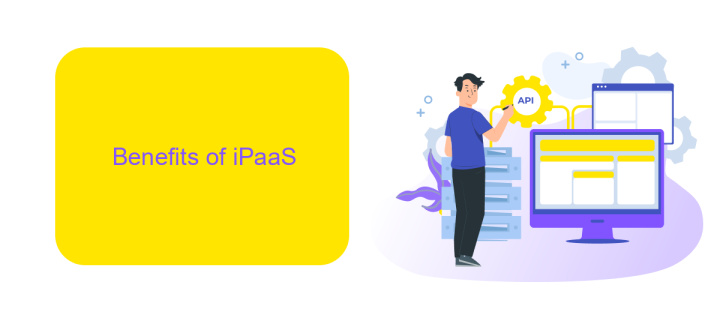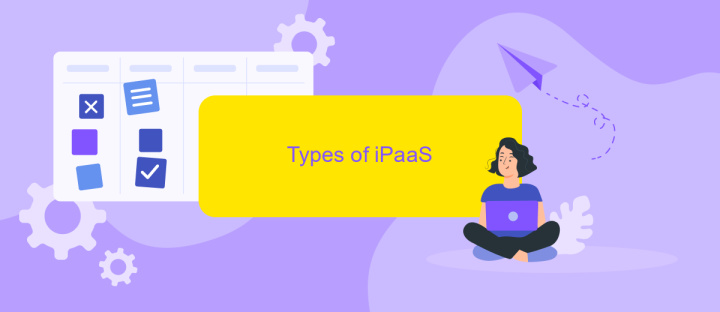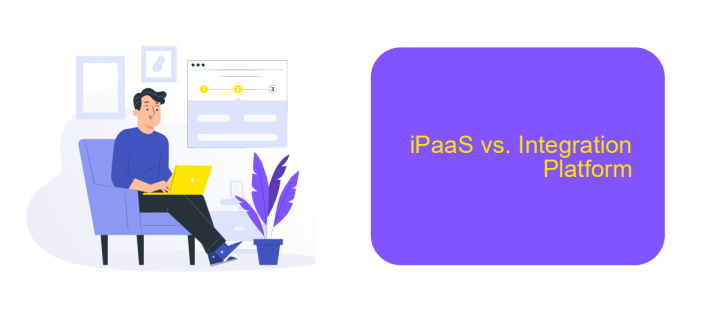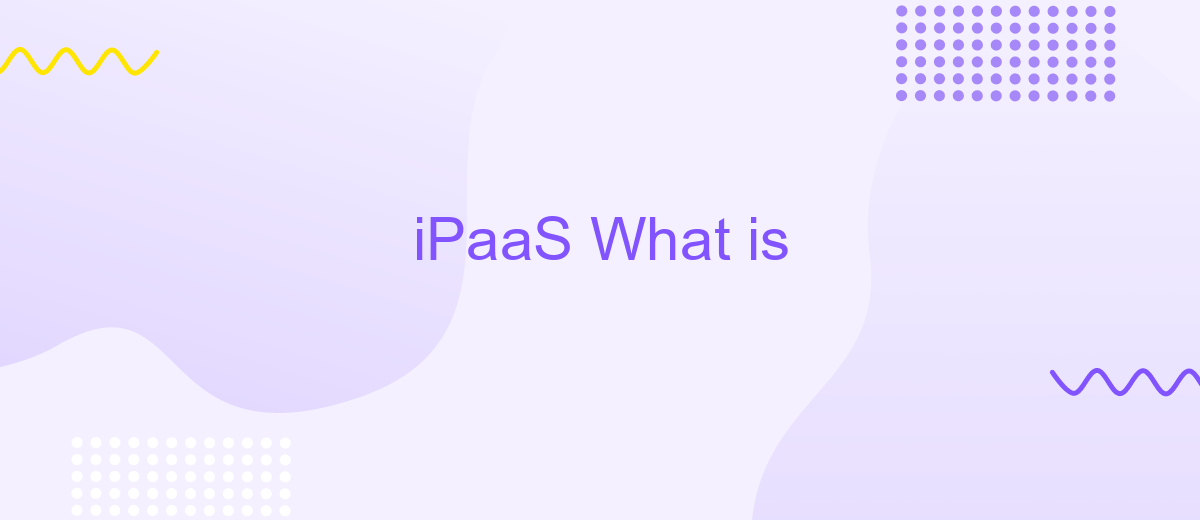iPaaS What is
Integration Platform as a Service (iPaaS) is a cloud-based solution that simplifies the integration of various applications and data across different environments. By providing tools and services to connect disparate systems, iPaaS enables seamless data flow and process automation, enhancing operational efficiency and agility. This article explores what iPaaS is, its key features, and how it benefits businesses.
What is iPaaS?
Integration Platform as a Service (iPaaS) is a cloud-based solution designed to integrate applications, data, and processes across various environments. It enables organizations to streamline their workflows and enhance productivity by connecting disparate systems seamlessly.
- Automated data synchronization
- Real-time data integration
- Scalable architecture
- User-friendly interface
- Pre-built connectors
One notable iPaaS provider is ApiX-Drive, which offers a robust platform for setting up integrations effortlessly. With ApiX-Drive, businesses can automate data transfer between applications and services, reducing manual efforts and minimizing errors. This service supports a wide range of integrations, making it an ideal choice for organizations looking to enhance their operational efficiency.
Benefits of iPaaS

iPaaS (Integration Platform as a Service) offers numerous benefits for businesses looking to streamline their operations. One of the primary advantages is the ability to seamlessly integrate various applications and data sources, eliminating the need for manual data entry and reducing errors. This leads to improved efficiency and productivity, as employees can focus on more strategic tasks rather than mundane, repetitive ones. Additionally, iPaaS solutions often come with pre-built connectors and templates, making it easier to set up and manage integrations without extensive coding knowledge.
Another significant benefit of iPaaS is its scalability and flexibility. As businesses grow and evolve, their integration needs can change rapidly. iPaaS platforms like ApiX-Drive offer scalable solutions that can adapt to these changes, allowing businesses to add or remove integrations as needed without significant downtime. Furthermore, iPaaS provides real-time data synchronization, ensuring that all systems are up-to-date and that decision-makers have access to the most current information. This leads to better decision-making and a more agile business environment.
Types of iPaaS

Integration Platform as a Service (iPaaS) solutions come in various forms, each designed to meet specific business needs. Understanding the different types can help organizations choose the right platform for their integration requirements.
- Cloud-based iPaaS: These platforms are hosted on the cloud and offer scalability, flexibility, and ease of use. They are ideal for businesses looking to integrate multiple cloud services and applications.
- On-premise iPaaS: These solutions are installed and run on the company's own servers. They provide greater control and security but may require more maintenance and resources.
- Hybrid iPaaS: Combining the best of both cloud and on-premise solutions, hybrid iPaaS enables seamless integration across various environments, ensuring data consistency and operational efficiency.
- Specialized iPaaS: These are tailored to specific industries or functions, offering features and tools that cater to niche requirements. For example, ApiX-Drive specializes in automating business processes and connecting various applications, making it easier for businesses to streamline their operations.
Choosing the right type of iPaaS depends on factors such as the complexity of integration needs, budget, and existing IT infrastructure. By evaluating these aspects, businesses can select a platform that enhances their operational efficiency and supports their growth.
iPaaS vs. Integration Platform

Integration Platform as a Service (iPaaS) and traditional Integration Platforms are both essential for connecting various applications and data sources within an organization. However, they differ significantly in terms of deployment, scalability, and ease of use. iPaaS is a cloud-based solution that offers a more flexible and scalable approach, whereas traditional Integration Platforms often require on-premises infrastructure and manual configurations.
One of the key advantages of iPaaS is its ability to provide seamless integration with minimal coding. Services like ApiX-Drive exemplify this by offering user-friendly interfaces and pre-built connectors for a wide range of applications. This enables businesses to set up integrations quickly and efficiently, without the need for extensive technical expertise.
- iPaaS: Cloud-based, scalable, and user-friendly.
- Traditional Integration Platforms: Often on-premises, less scalable, and require more manual configuration.
- ApiX-Drive: Offers pre-built connectors and easy-to-use interfaces for quick integration setup.
In summary, while both iPaaS and traditional Integration Platforms serve the same fundamental purpose, iPaaS offers a more modern, scalable, and user-friendly approach. Tools like ApiX-Drive further simplify the integration process, making it accessible even to those without extensive technical backgrounds.
Future of iPaaS
The future of iPaaS (Integration Platform as a Service) looks promising as businesses continue to embrace digital transformation. With the increasing need for seamless integration of various applications and data sources, iPaaS solutions are expected to become more sophisticated and user-friendly. Companies like ApiX-Drive are leading the way by providing tools that simplify the integration process, allowing businesses to connect their systems without extensive technical expertise. This trend towards low-code or no-code platforms will enable more organizations to leverage iPaaS solutions, driving efficiency and innovation.
Moreover, the evolution of iPaaS will likely include advanced features such as AI-driven automation and real-time data processing. These enhancements will enable businesses to respond more quickly to market changes and customer demands. Additionally, as data security and compliance become increasingly critical, iPaaS providers will focus on offering robust security measures and ensuring regulatory compliance. Overall, the future of iPaaS is set to revolutionize how businesses operate, making integration more accessible, efficient, and secure.
- Automate the work of an online store or landing
- Empower through integration
- Don't spend money on programmers and integrators
- Save time by automating routine tasks
FAQ
What is iPaaS?
How does iPaaS work?
What are the benefits of using iPaaS?
Can iPaaS be used by non-technical users?
What types of applications can be integrated using iPaaS?
Routine tasks take a lot of time from employees? Do they burn out, do not have enough working day for the main duties and important things? Do you understand that the only way out of this situation in modern realities is automation? Try Apix-Drive for free and make sure that the online connector in 5 minutes of setting up integration will remove a significant part of the routine from your life and free up time for you and your employees.


